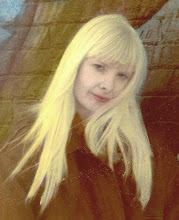
Bob Hope, (born Leslie Townes Hope; May 29, 1903 – July 27, 2003) was an American comedian and actor who appeared in vaudeville, on Broadway, and in radio, television and movies. He was also noted for his work with the US Armed Forces and his numerous USO tours entertaining American military personnel. Throughout his career, he was honored for his humanitarian work. In 1996, the U.S. Congress honored Bob Hope by declaring him the "first and only honorary veteran of the U.S. armed forces." Bob Hope appeared in or hosted 199 known USO shows.
Hope, like other stage performers, made his first films in New York. Educational Pictures employed him in 1934 for a short-subject comedy, Going Spanish. Hope sealed his fate with Educational when Walter Winchell asked him about the film. Hope cracked, "When they catch John Dillinger, they're going to make him sit through it twice." Educational fired him, but he was soon before the cameras at New York's Vitaphone studio starring in 20-minute comedies and musicals from 1934 through 1936, beginning with Paree, Paree (1934).
Paramount Pictures signed Hope for the 1938 film The Big Broadcast of 1938. During a duet with Shirley Ross as accompanied by Shep Fields and his orchestra, Hope introduced the song later to become his trademark, "Thanks for the Memory", which became a major hit and was praised by critics. The sentimental, fluid nature of the music allowed Hope's writers (whom he is said to have depended upon heavily throughout his career) to later invent endless variations of the song to fit specific circumstances, such as bidding farewell to troops while on tour.
Hope became one of Paramount's biggest stars, and would remain with the studio through the 1950s. Hope's regular appearances in Hollywood films and radio made him one of the best known entertainers in North America, and at the height of his career he was also making a large income from live concert performances.
As a movie star, he was best known for My Favorite Brunette and the highly successful "Road" movies in which he starred with Bing Crosby and Dorothy Lamour. Hope had seen Lamour as a nightclub singer in New York, and invited her to work on his USO tours. Lamour is said to have arrived for filming prepared with her lines, only to be baffled by completely re-written scripts from Hope's writers without studio permission. Hope and Lamour were lifelong friends, and she is the actress most associated with his film career. Other female co-stars included Paulette Goddard, Lucille Ball, Jane Russell, and Hedy Lamarr.

Hope was host of the Academy Awards ceremony 18 times between 1939 and 1977. His feigned lust for an Academy Award became part of his act. In one scene from Road to Morocco he erupted in a frenzy, shouting about his imminent death from exposure. Bing Crosby reminds him that rescue is just minutes away, and a disappointed Hope complains that Crosby has spoiled his best scene, and thus his chance for an Academy Award. Also, in The Road to Bali, when Crosby finds Humphrey Bogart's Oscar for The African Queen, Hope grabs it, saying "Give me that. You've got one." Although Hope was never nominated for an Oscar for his performances (Bing Crosby won the Best Actor for Going My Way in 1944), the Academy of Motion Picture Arts and Sciences honored him with four honorary awards, and in 1960, the Jean Hersholt Humanitarian Award. While introducing the 1968 telecast, he quipped, "Welcome to the Academy Awards, or, as it's known at my house, Passover."
Hope performed his first United Service Organizations (USO) show on May 6, 1941, at March Field, California. He continued to travel and entertain troops for the rest of World War II and later during the Korean War, the Vietnam War and the 1990–1991 Persian Gulf War. When overseas he almost always performed in Army fatigues as a show of support for his audience. Hope's USO career lasted half a century, during which he headlined approximately 60 tours. For his service to his country through the USO, he was awarded the Sylvanus Thayer Award by the United States Military Academy at West Point in 1968.
Of Hope's USO shows in World War II, writer John Steinbeck, who was then working as a war correspondent, wrote in 1943:
"When the time for recognition of service to the nation in wartime comes to be considered, Bob Hope should be high on the list. This man drives himself and is driven. It is impossible to see how he can do so much, can cover so much ground, can work so hard, and can be so effective. He works month after month at a pace that would kill most people."

A 1997 act of Congress signed by President Clinton named Hope an "Honorary Veteran." He remarked, "I've been given many awards in my lifetime — but to be numbered among the men and women I admire most — is the greatest honor I have ever received."
Hope appeared in so many theaters of war over the decades that it was often cracked (in Bob Hope style) that "Where there's death, there's Hope".
In 2009, Stephen Colbert carried a golf club on stage each night during his own week-long USO performance and taping of The Colbert Report and explained in his last episode that it was an homage to Hope.

No comments:
Post a Comment